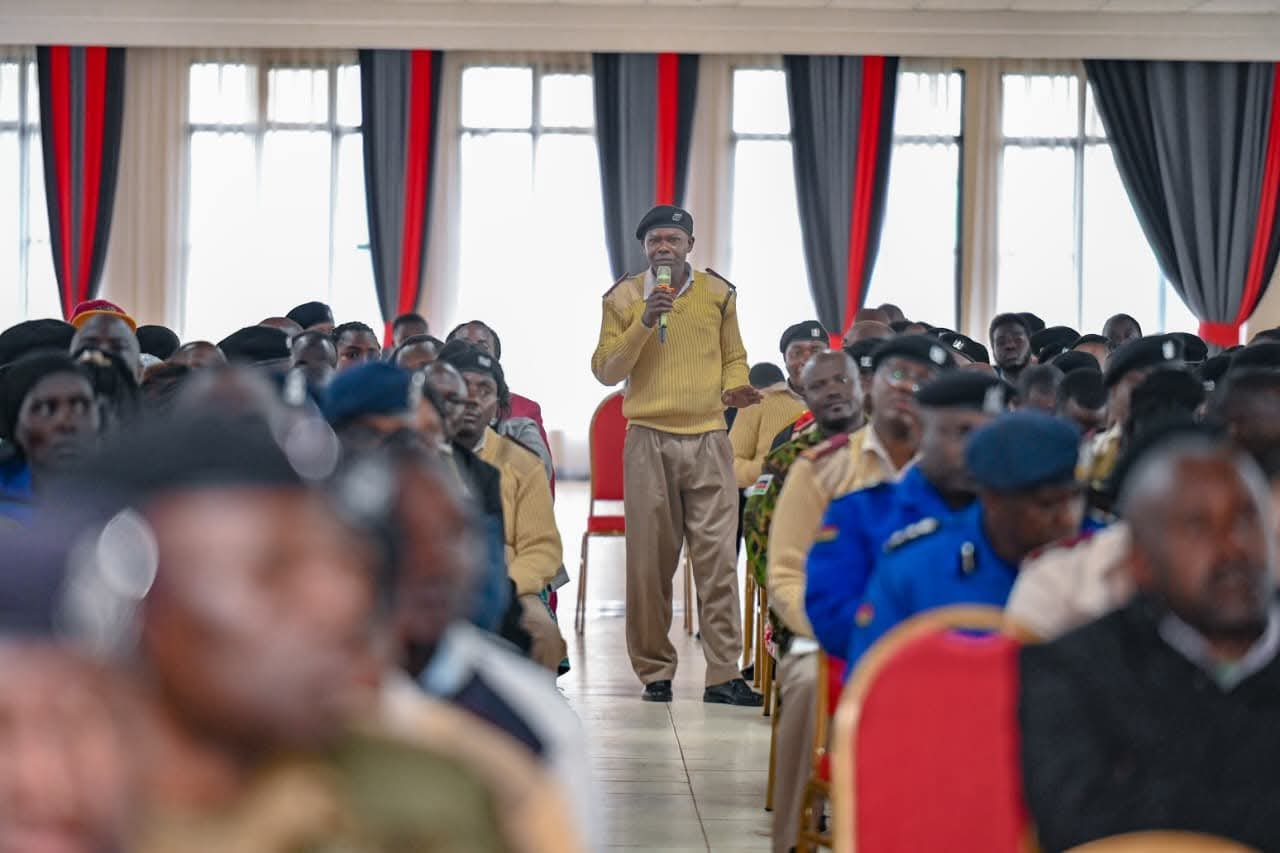
Uthiru Chief targets Gen Zs in corporal punishment push » Capital News
NAIROBI, Kenya, Aug 19 — Kiambu’s Uthiru Location Chief has stirred public debate after calling for the reintroduction of corporal punishment in schools, arguing that its abolition has fueled indiscipline and moral decay among young people.
Speaking Monday during an engagement with Interior Cabinet Secretary Kipchumba Murkomen, the administrator lamented what he described as a “lost generation” of youth, accusing many Gen Zs of idleness, drug abuse, and defiance of authority.
“The main challenge, in my opinion, began when someone — I don’t even know who — removed corporal punishment from schools,” he said.
“Now we’re seeing the consequences, especially with the current generation. You hear of Wantam, Gen Z, and so on.”
The chief warned that without proper discipline, the country risks raising “fragile children” unable to withstand life’s pressures.
“They go to university, earn first-class honors, get employed, and soon after, they are fired. Some end up turning to alcohol and other destructive habits. I’ve seen some of them in my own neighborhood frequenting illicit alcohol dens,” he added.
Corporal punishment ban
Kenya formally banned corporal punishment under the Children Act, 2022, aligning domestic law with the 2010 Constitution and international human rights obligations. The Act explicitly outlaws corporal punishment in all settings, including schools and homes.
Article 29 of the Constitution guarantees freedom from violence, torture, and corporal punishment, while Article 53 protects children from all forms of abuse and inhuman treatment. Kenya is one of ten African countries that have outlawed corporal punishment entirely, opting instead for non-violent methods of child discipline and protection.
The chief’s remarks come amid growing concern over rising crime, drug abuse, and moral decline among the youth.
President William Ruto has also repeatedly urged parents and religious institutions to play a stronger role in instilling values.
Speaking in Uasin Gishu in December 2024, the President stressed that social vices must be confronted at the family and community level.
“Finger-pointing and blame games will not solve these issues. It is the responsibility of parents and the church to instill morals and good manners in our children,” Ruto said.
“The government cannot preach in church. Our job is to deal with criminals. But it is easier for the government to function effectively when we are dealing with citizens of good morals, good stature, and good standing.”
Frustrations
In May 2O25, American pastor and former NFL player Dr. Rickey Bolden also weighed in on the growing rift between President Ruto and Gen Z, urging national leaders to reckon with the frustrations and unmet promises facing young people.
Addressing the 22nd National Prayer Breakfast—attended by President Ruto, First Lady Rachel Ruto, and other political, religious, and diplomatic leaders—Bolden urged inclusion of the youth in decision-making.
“Gen Z is dying, and I am speaking as a parent of Gen Zs. They are dying to be loved [and] are dying for a seat at the table. They are dying to be respected… Because sometimes, as parents, we want our children to remain children all their lives. But that’s not the case with Gen Z; they have grown up,” he said.
Bolden called for generational reconciliation, not as a symbolic gesture but as a practical commitment to inclusion and shared leadership.
“It’s not enough to say Gen Z is the future. They are the now. They are entrepreneurs, doctors, engineers, and some are wiser than we are. The most frustrating thing you can do to a Gen Z adult is keep treating them like a child,” he stressed.
Visited 1 times, 1 visit(s) today